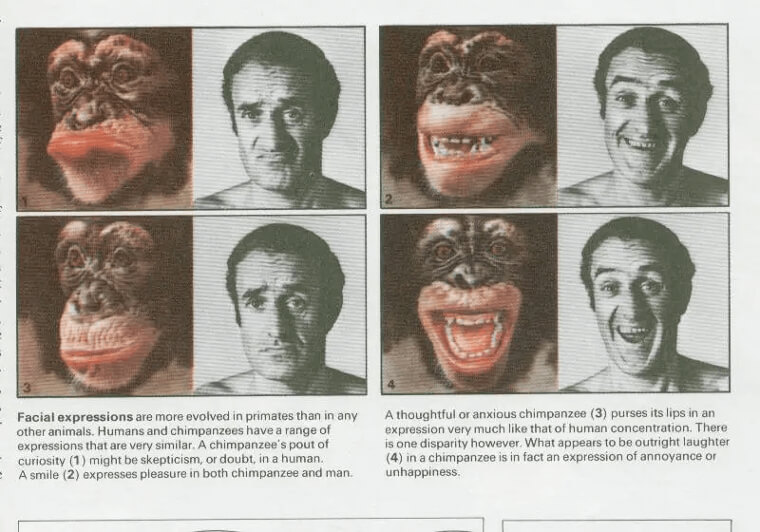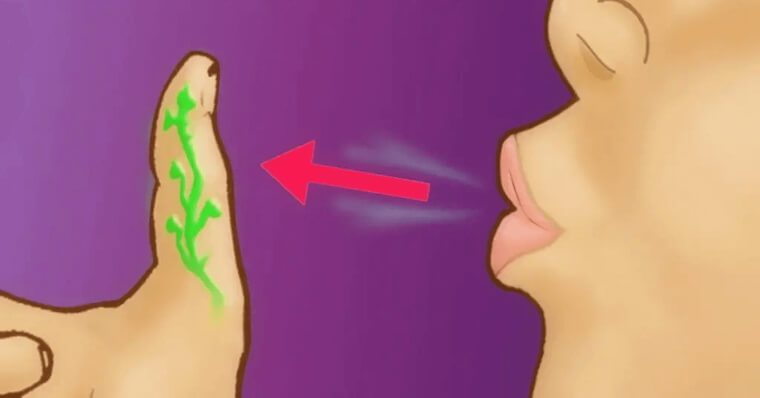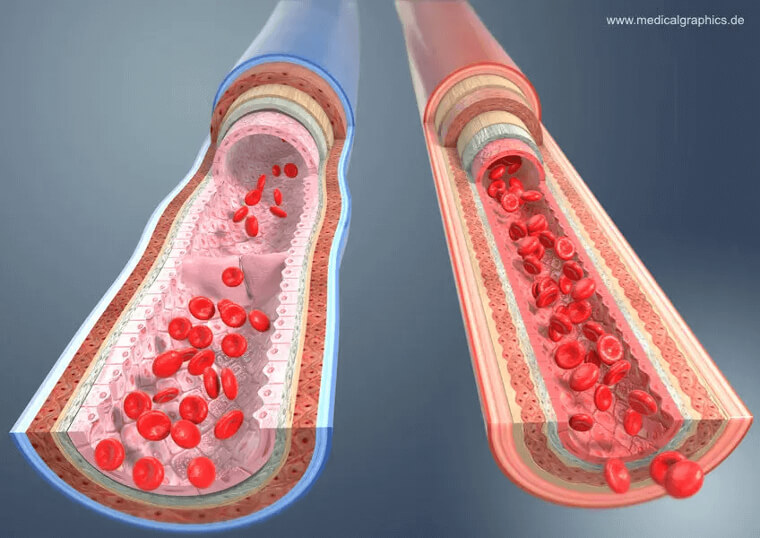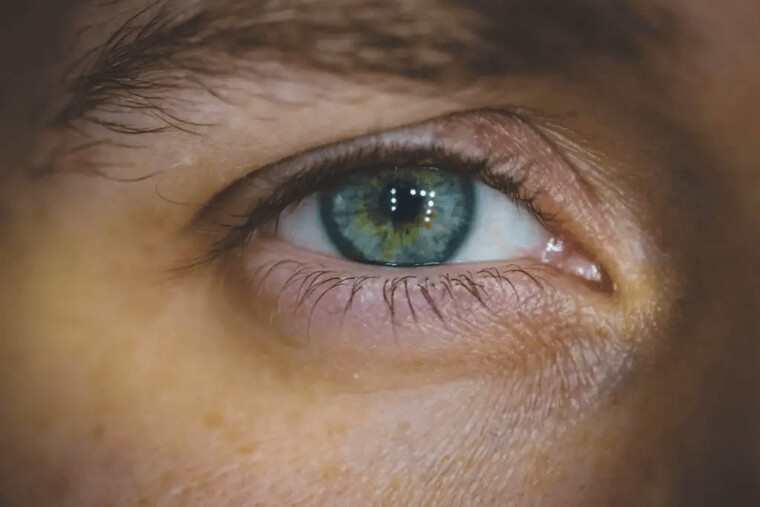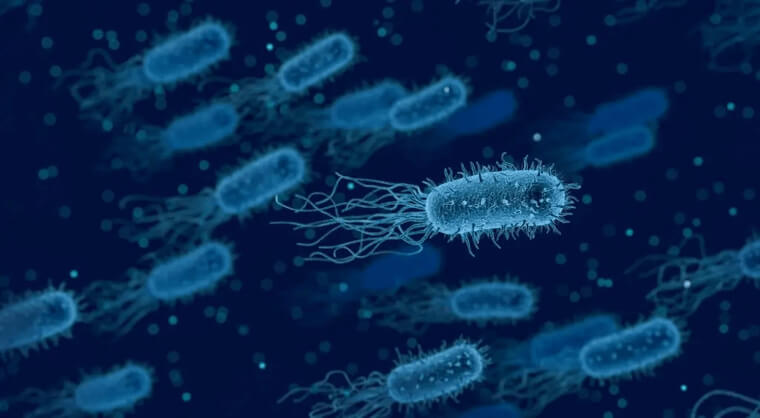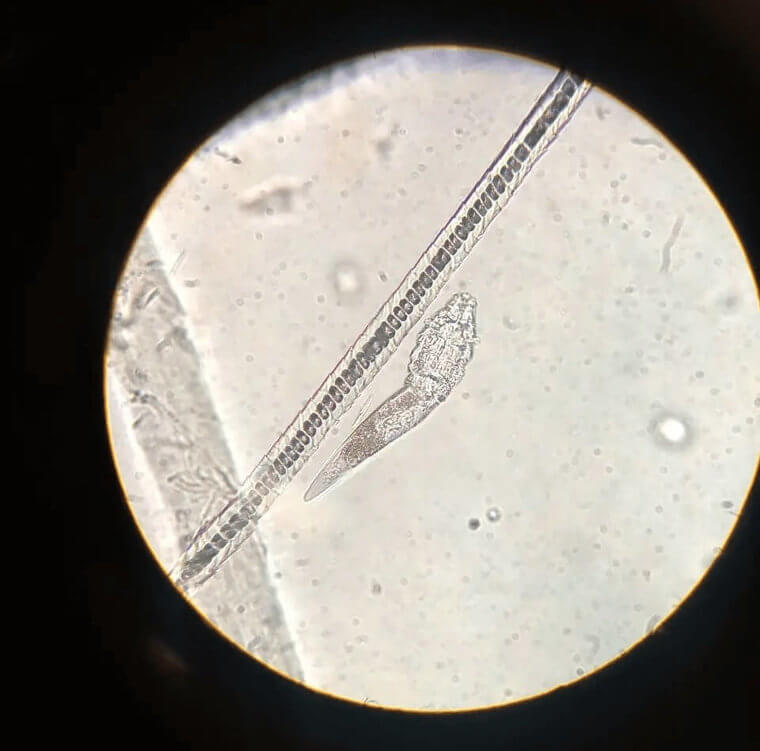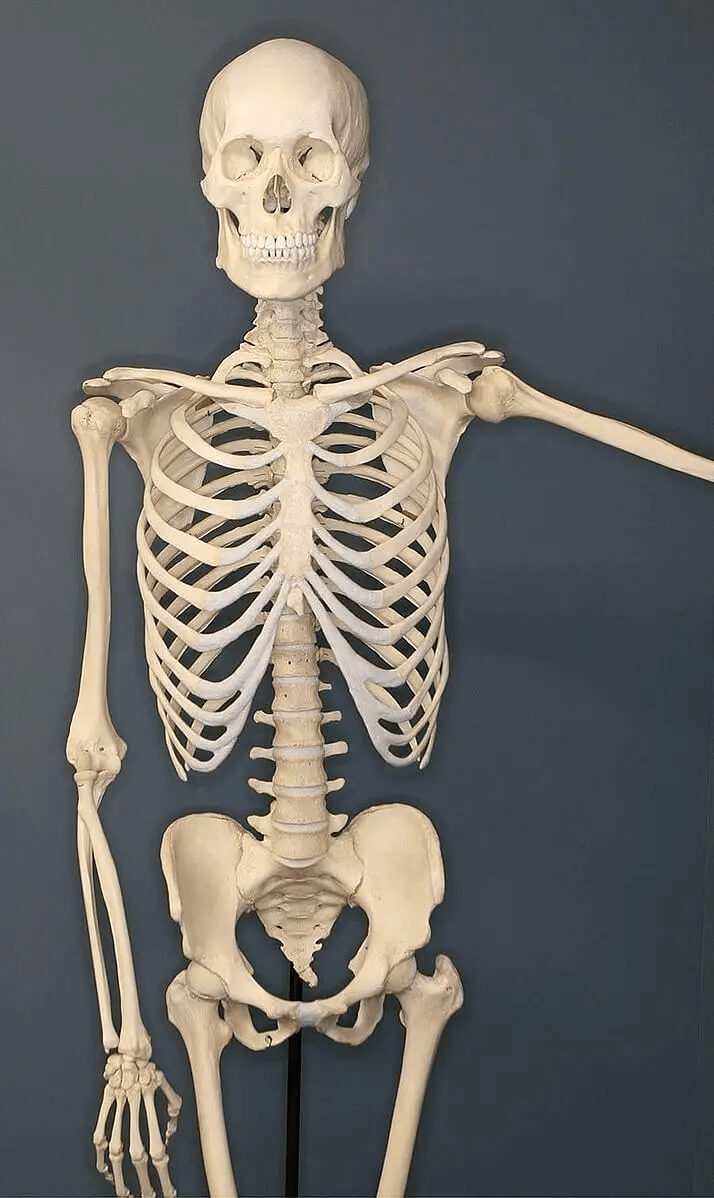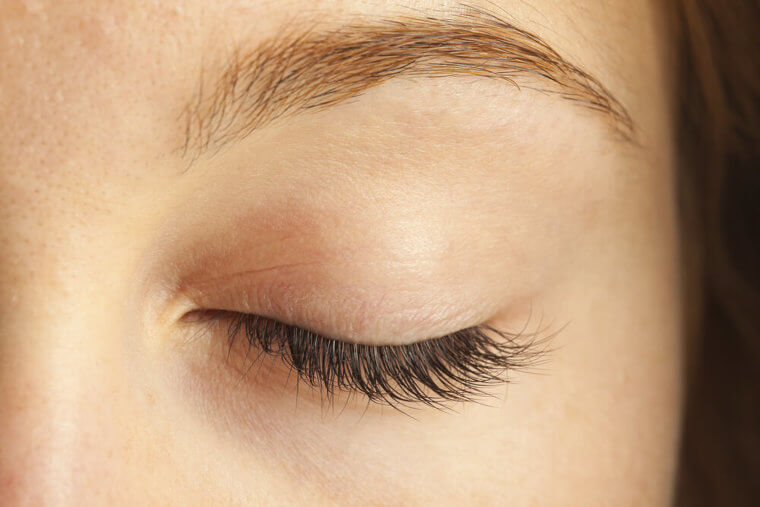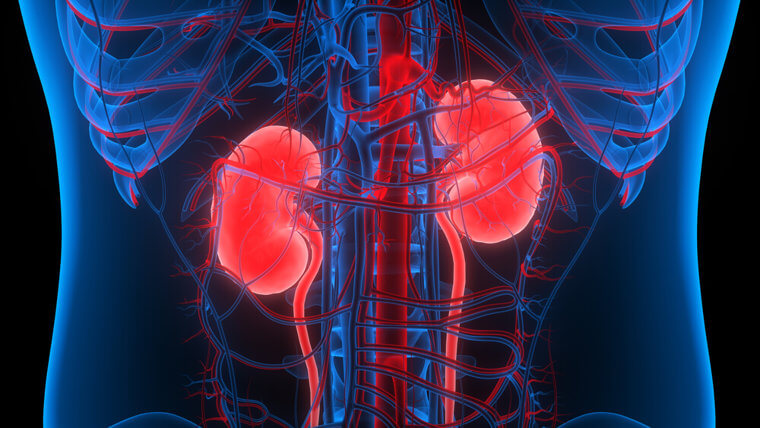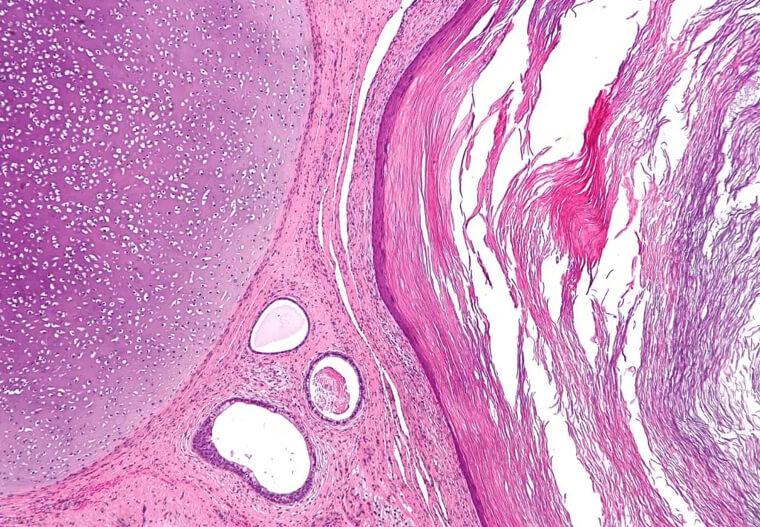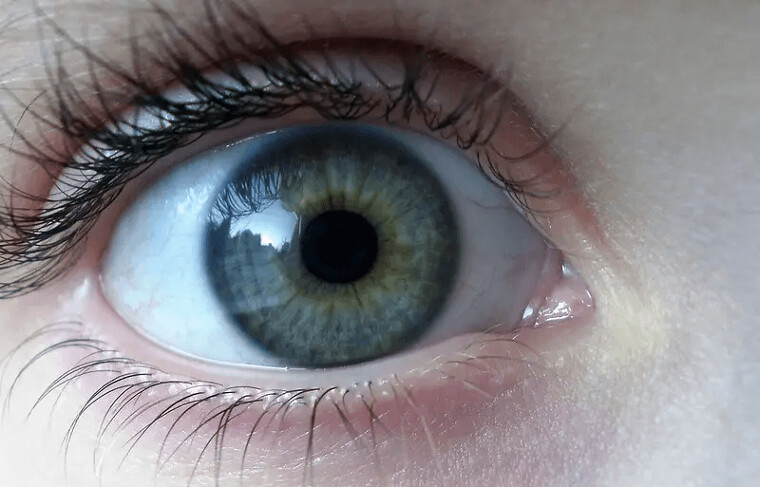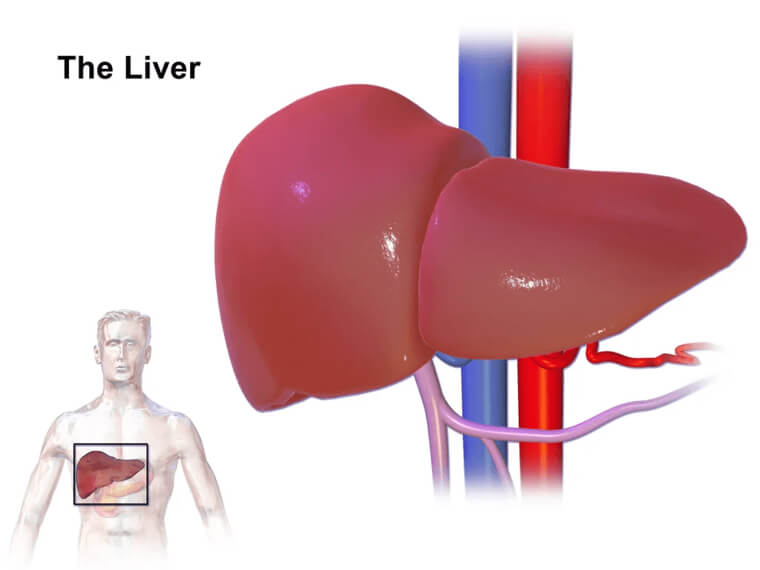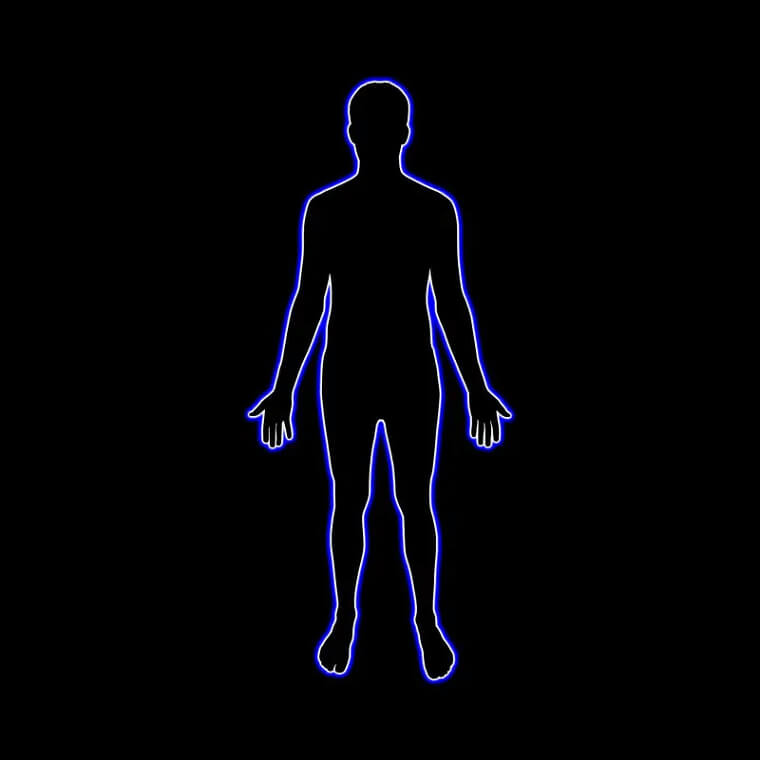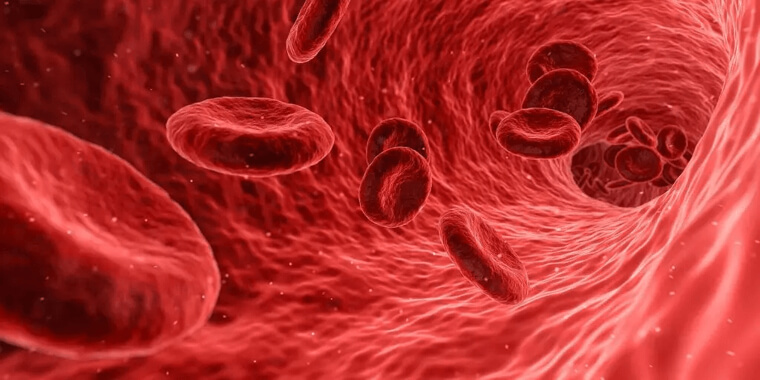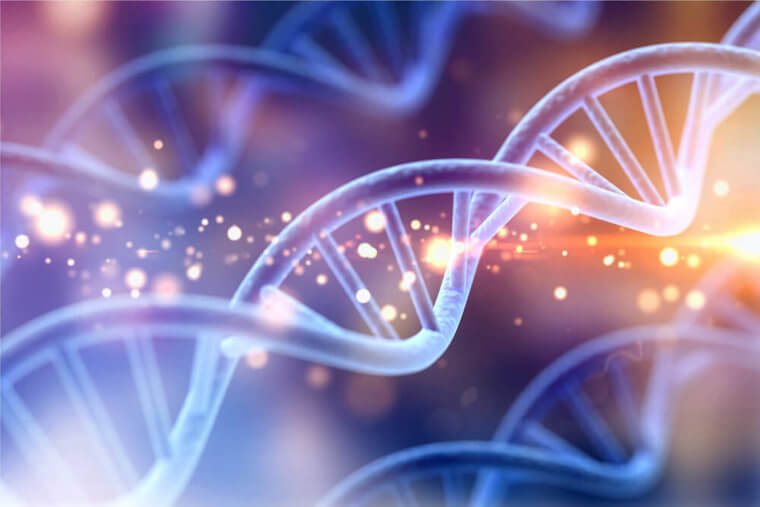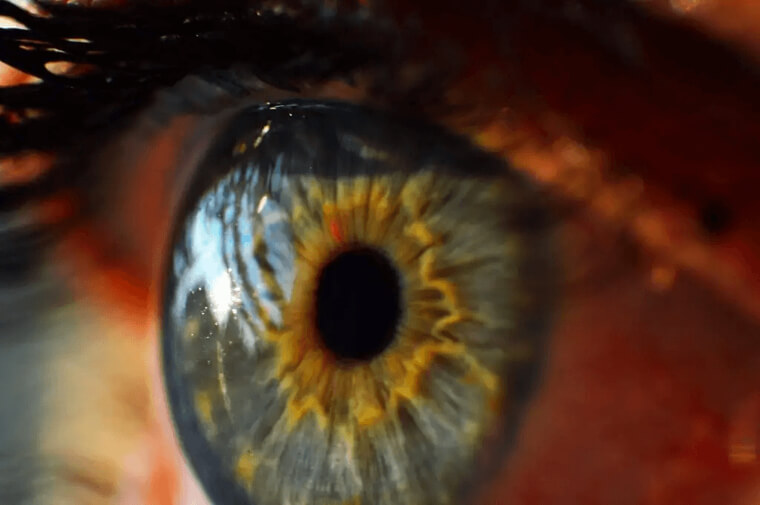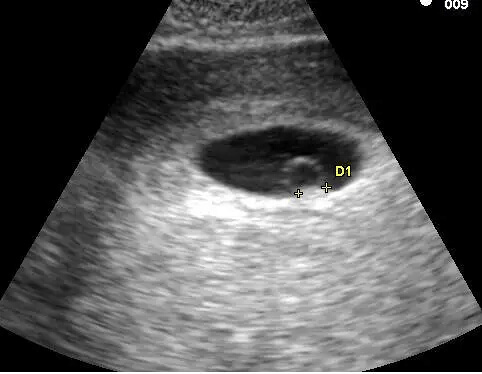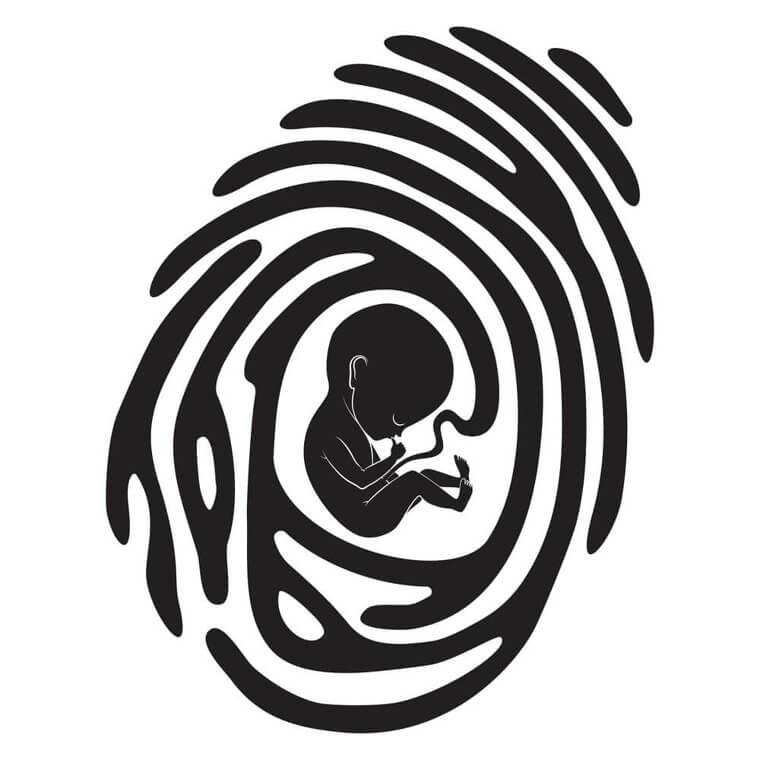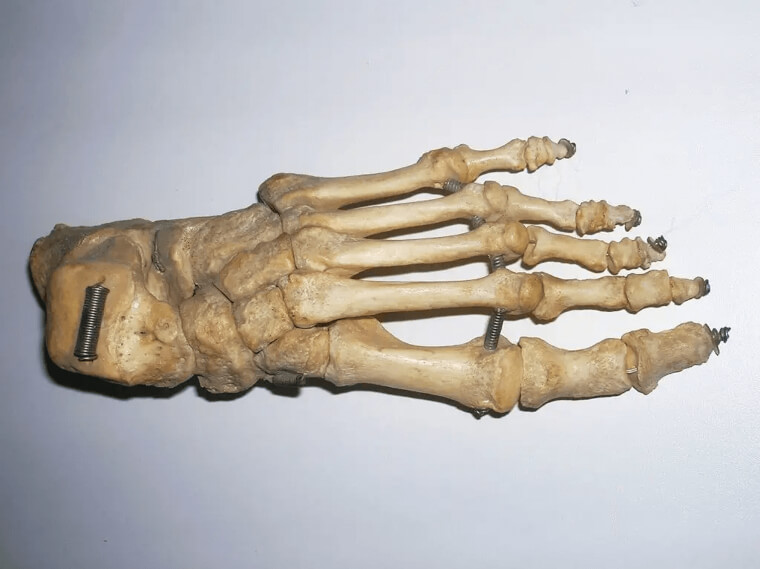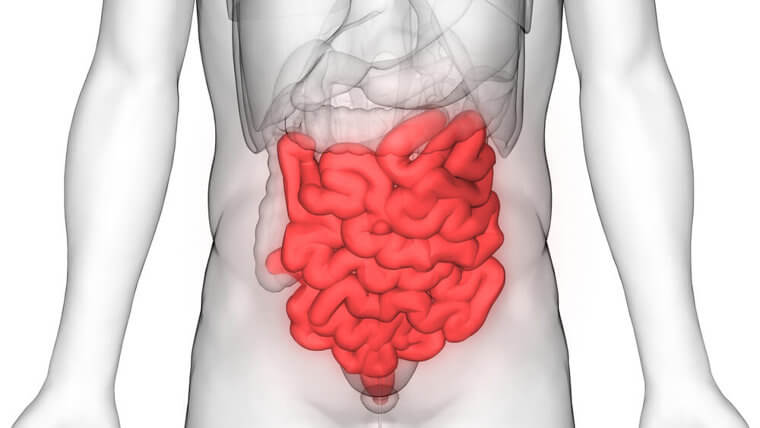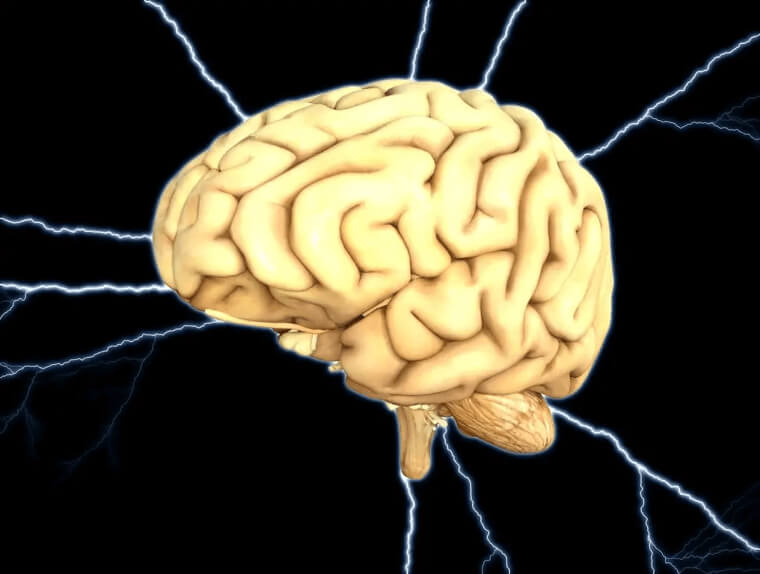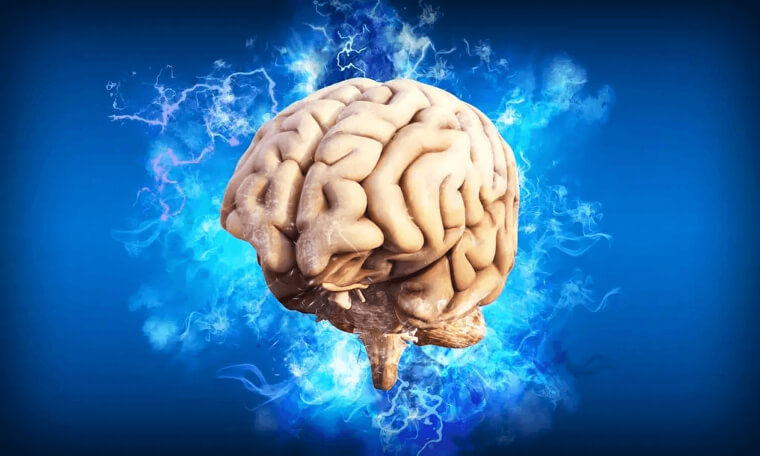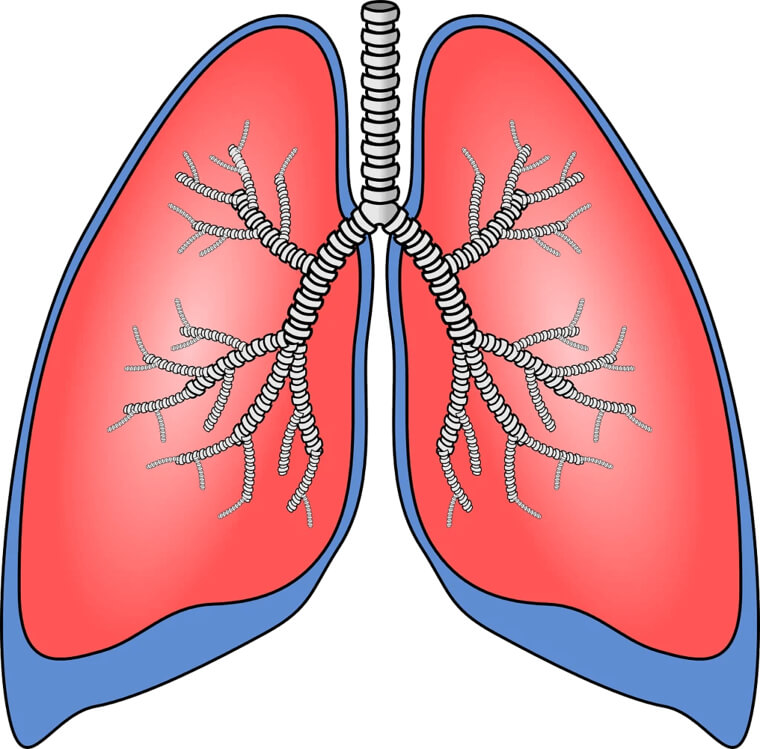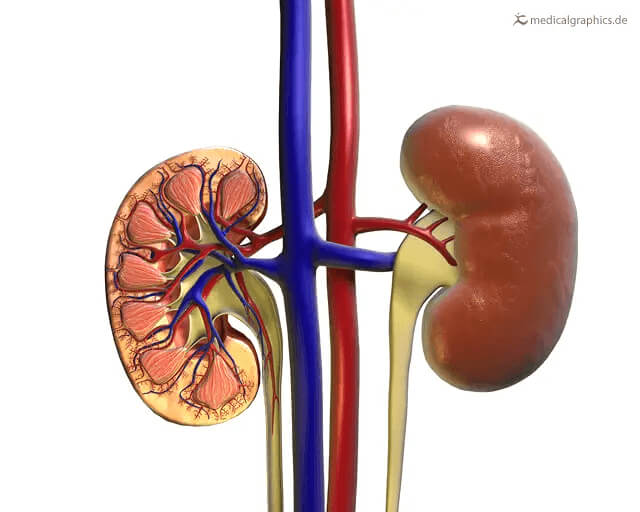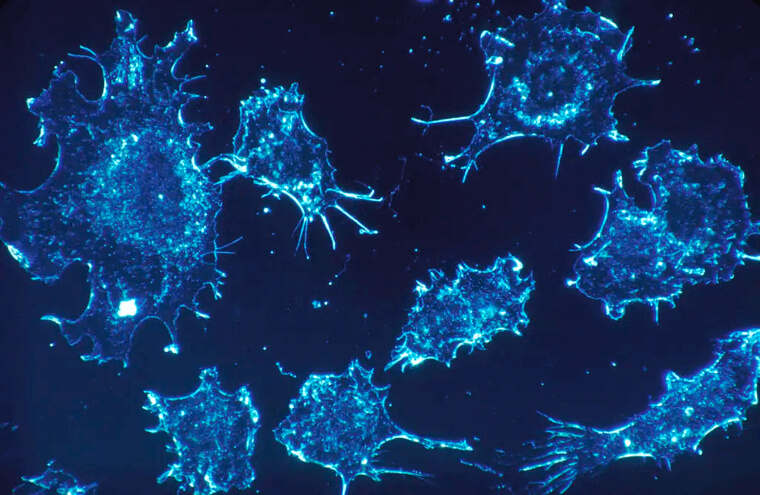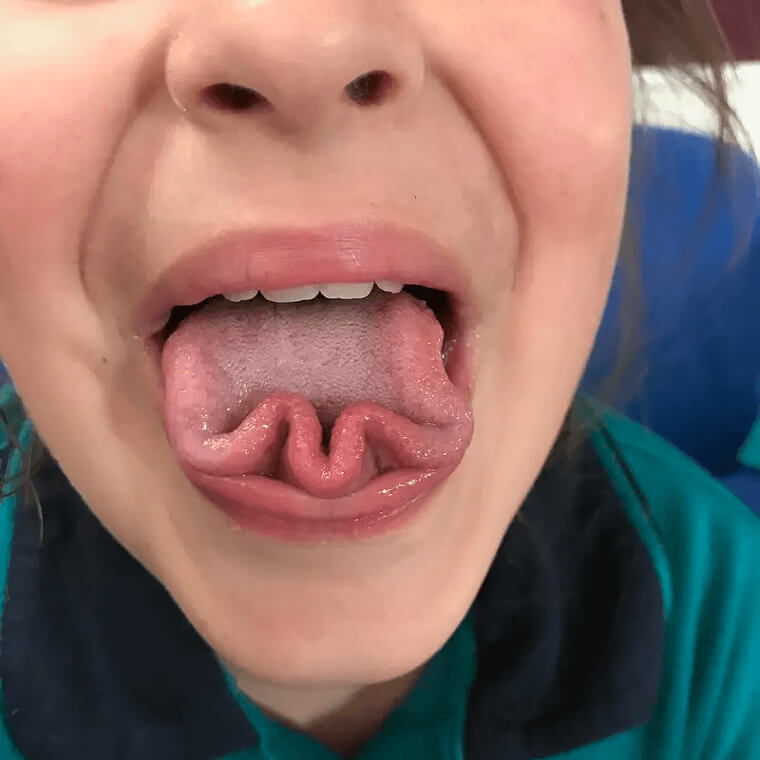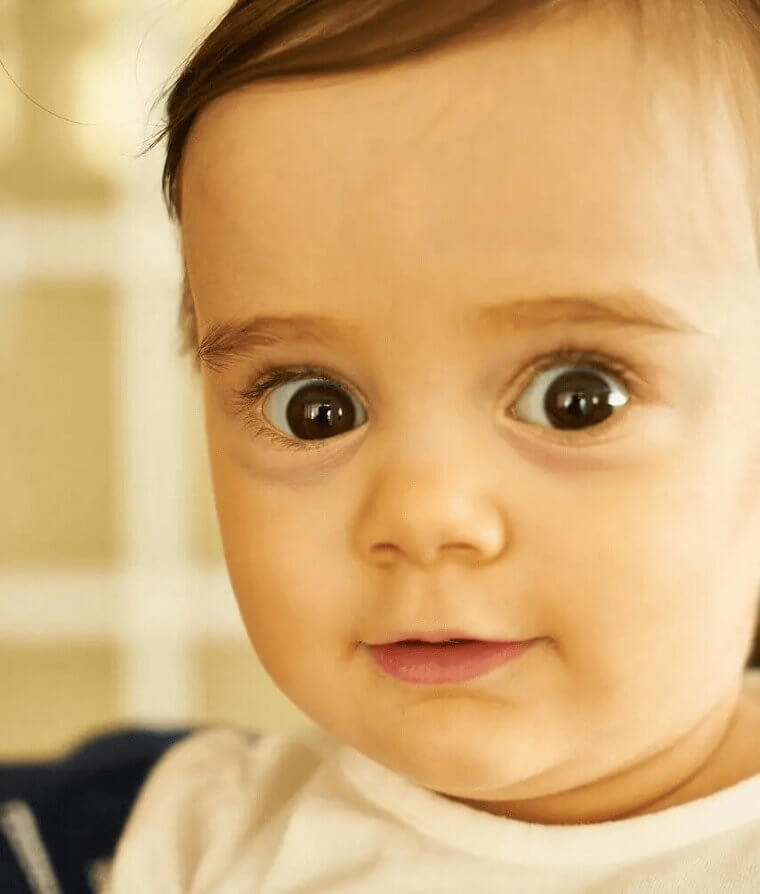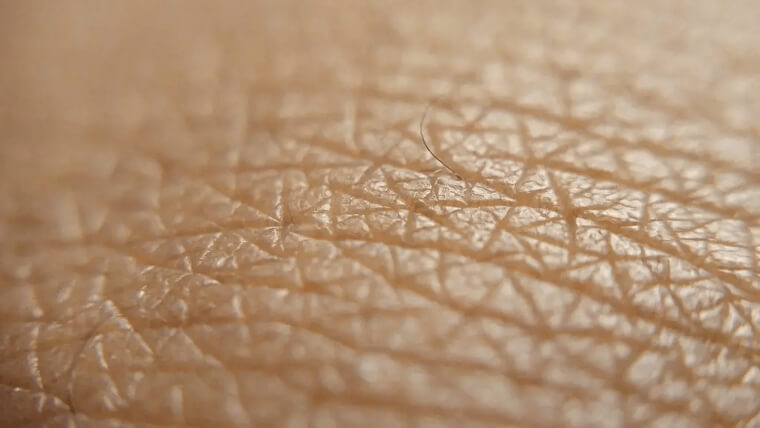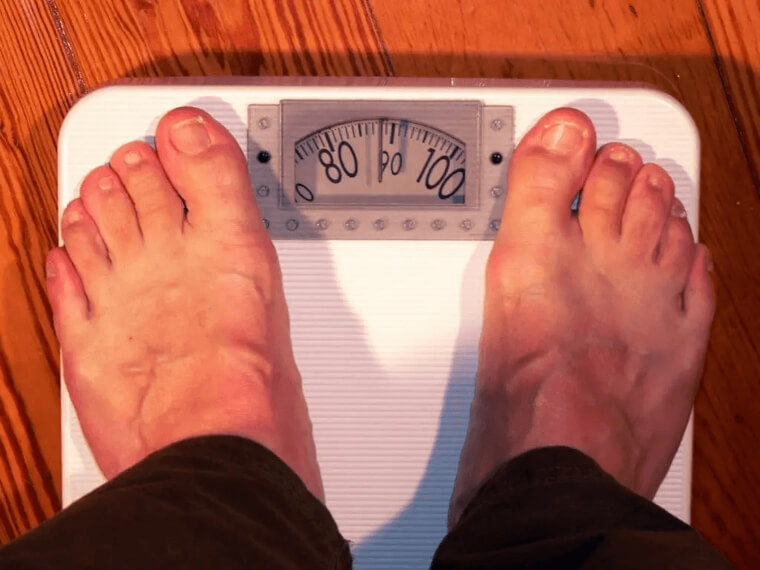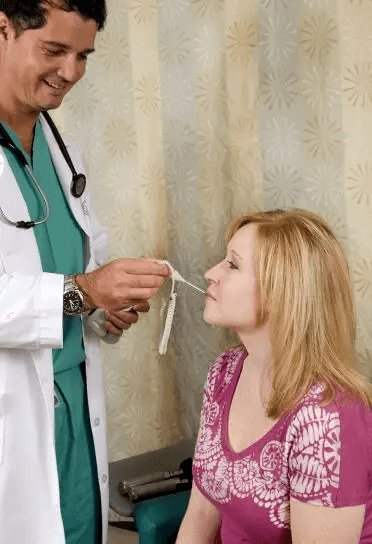Human Teeth Have The Same Strength As Shark Teeth
This might come as a huge surprise to most of us, but it’s true. And even though shark teeth are in fact made of a harder mineral than the one that human teeth are made of, both are extremely similar in strength.
This is mostly because the enamel coating on a shark's teeth is pretty comparable to the human one.
Whenever A Person Blushes So Does Their Stomach
If you’re a blusher, then the next time you blush think about this one. It turns out that when you blush, your stomach also becomes red just like your face does.
This happens because all of your capillaries widen whenever you feel a little bit shier or embarrassed, which in turn increases blood flow. This blood flow is what is responsible for the red blush color.
The Electricity Generated Through The Brain Could Power A Light Bulb
Well, you heard it right, it seems like all of that electricity in our brain is more powerful than we know. The brain is regularly sending several electrical impulses and signals amongst billions of neurons.
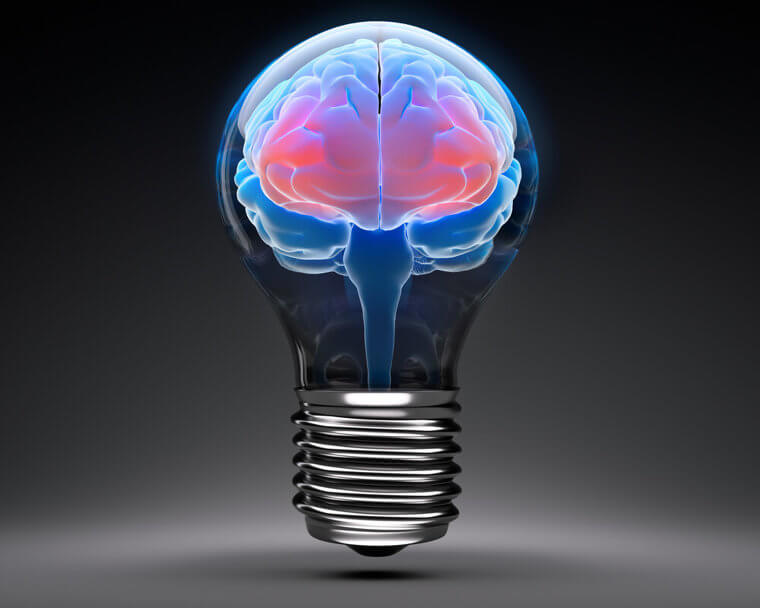
So it’s safe to say that there is a lot going on up there! If we combine all of these signals and impulses, their electricity could power a light-bulb.
Breaking Your Heart Could Result In A Heart Condition
Now, this one may anger some out there, since having our hearts broken appears to be enough suffering for one person. Yet, there is a condition out there called the heartbroken syndrome which is painfully real.

Apparently, the chest pain, the shortness of breath, and the emotional stress one experiences during a heartbreak are similar to a heart attack but can usually be resolved within a couple of days or weeks.
The Human Face Can Make Nearly 7,000 Different Expressions
By now, humans have collected more facial muscles than any primate ancestors who were ever on this earth. Obviously, the fact that we have no (or less) hair on the face in comparison to our primate ancestors makes seeing these expressions much more easily than before.
Researchers suggest thousands of possible expressions out there, which only increase as we evolve.
Some People Fall Asleep To The Sound Of A Bomb
We can’t even begin to imagine what it must feel like to hear a bomb every time you want to fall asleep. Apparently, the strange experience is called exploding head syndrome.

The sound basically resembles a really loud gunshot or explosion and either happens when one wakes up or falls asleep. It is suggested that about 10% of the population are affected by it.
It Is Almost Impossible To Destroy Human Hair
This fact might not come as the biggest surprise on our list as many of us have previously heard that human hair is, in fact, incredibly strong. This part of our body is so strong that apparently, the only thing that could really destroy it is fire.
Other than that, hair decays at an incredibly slow rate and can easily resist several types of acids and chemicals.
Some People Have A Syndrome Associated With Being Obsessed With Fine Dining
At this point, we have probably understood that there are a plethora of conditions and syndromes out there, and some of them won’t always make sense.
This particular syndrome, called Gourmand Syndrome, takes place when someone suffers an injury in the right anterior cerebral hemisphere of their brain. From then on, the person will mostly show preference to eat only fine foods.
Your Stomach Acid Could Actually Burn A Hole In Your Skin
Our bodies are so powerful that the number of things it is capable of doing is never-ending. For instance, while individual stomachs really vary when it comes to their level of acidity, this acidity is usually incredibly powerful.
And while the hydrochloric acid that our body produces is strong enough to break down food, in several cases, it's strong enough to burn a hole in one’s skin.
By Putting Your Thumb Up To Your Mouth While Blowing, You May Reduce Stress
Stress is one of the biggest challenges of modern society. So many of us struggle with it, and as much as we try, it’s not always easy to get past it. And though it may sound strange, you could try to blow your thumb as an effective stress reliever.
The mechanism works by cooling off the thumb and calming your pulse with it.
There Is Probably More Bacteria In Our Mouths Than The Number Of People Living On Earth
There are so many bacteria spread around in the world that we barely understand how much there really is out there. Fun fact, bacteria actually thrive in the human body, since the environment is warm and moist just like they like it.
Scientists have documented at least 615 types of bacteria that could be found in our bodies, and in our mouths, in particular, the levels could get to billions.
Adults Have Fewer Bones In Their Bodies In Comparison To Babies
Here goes another fact that may come as a huge shocker to most people. Babies are tiny, but did you ever think that they could have more bones in their bodies than adult humans?
Well, humans are born with at least 270 bones in their bodies, yet, many of them end up fusing together over time. In the end, adults may end up with 206 different bones.
If Your Blood Vessels Were Laid End to End, Their Length Would Circle The World Twice Or More
Our bodies contain an incredible amount of blood vessels. They can be found between the veins, arteries, capillaries, and more. Basically, they are winding everywhere throughout every single inch of our limbs.
So if we were to line them up next to each other, these blood vessels could possibly stretch between 60 to about 100 thousand miles, yikes!
Our Eyes Can See At A Whopping Resolution Of 500 Megapixels
The human eye is easily one of the most impressive organs in our bodies. They are so versatile, and in comparison to any screen out there (no matter how advanced it may be), nothing will ever get to the level of our eyes.
As a matter of fact, the human eye can see at an incredible resolution of 500 megapixels with its vision spanning 180 degrees.
Humans Have Ten Times More Bacteria In Their Body Than Human Cells
And yet again we are reminded of the number of bacteria we have in our bodies is on a whole other level. It has been proven time and time again that our bodies contain much more bacteria than actual cells.
And even though these giant microbial communities may have a terribly detrimental effect on our health, they are still widely understudied.
Your Body Weight Is Made Up Of 16% Of Your Skin
Our body weight is made up of so many different things, but it may come as a huge shock that our skin actually makes up for 16% of our body weight. In an average adult, that means that about 20 pounds or even more are all allocated to their skin.
If you were to peel it all off and line it up, the skin could cover about 22 squares feet.
Your Eyelashes Have Mites Living In Them
Mites can be in many places in this world but we never thought that our eyelashes could be one of their homes. In fact, it may be a little too weird to think about it, and if that wasn’t enough, they also love inhabiting other hair follicles in our bodies.
The specific species of mites found in our eyelashes are called Demodex, and they could be the cause of many skin disorders.
The Human Skeleton Regenerates Itself Every Ten Years
You might have probably heard about the fact that bones regenerate themselves pretty easily. In reality, they are constantly regenerating, which results in a mix of old and new bones in our bodies at some point in time.
While this process never really stops, as we age, the process slows down a little bit until we die.
Our Hearts Can Squirt Blood As Far As 30 Feet In Distance
This may sound a little freaky to some, but it’s still a fascinating fact about our bodies and our heart in specific. The heart is one of the strongest organs in our bodies, and they are what we could call a living pump with tons of pressure.
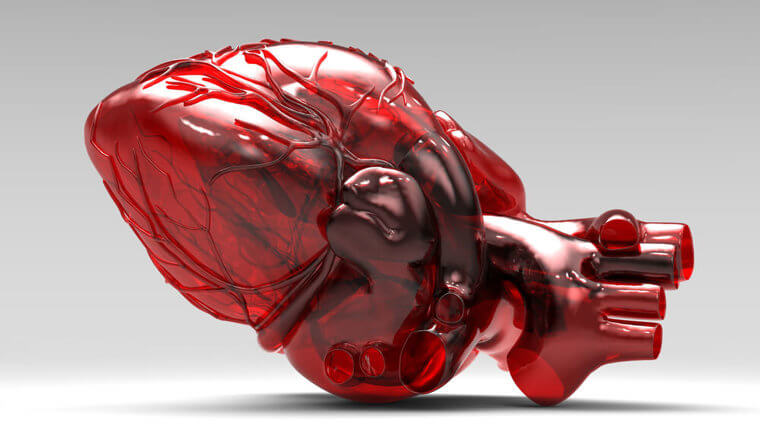
This pressure could send a bunch of blood flying all the way across the opposite side of a room.
Our Eyes Stay Closed At Least For 10% Of The Time We Are Awake
While some people blink much more than others, most people blink around 15 to 20 times every minute without even noticing it.
As a result of the constant blinking we do on a daily basis (though a blink may only last the split of a second), this results in most of our eyes being closed for about 10% of the time that we are awake.
Once Taken Out Of The Body, The Heart Can Continue To Beat
It may seem a little bit creepy, but heart transplants actually happen that way. Doctors make sure that the heart keeps beating while they carefully transport it to the receiving patient, and voila!
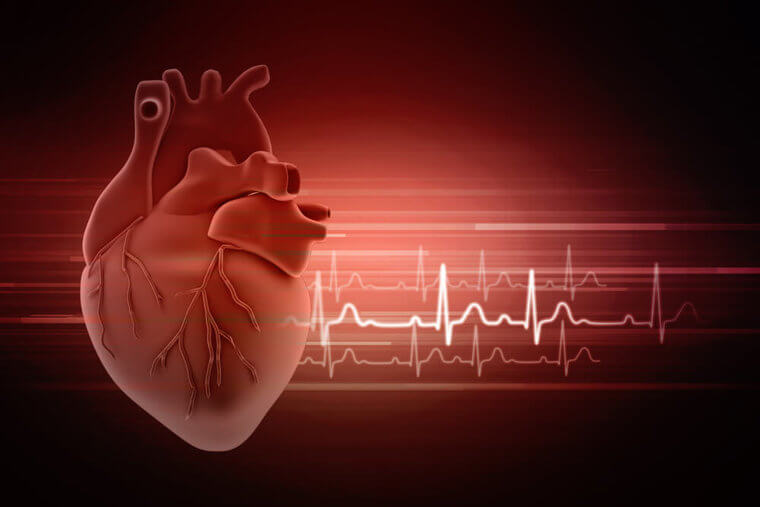
This life-saving procedure is performed some 5,000 times a year all over the world and is a life savior for many people out there, including our loved ones.
Your Kidney Filters Your Blood About 25 Times A Day
There is no doubt that the kidney is another crucial and amazingly strong organ in our bodies. The organ filters the blood about 25 times a day, which adds up to some 180 liters of blood processed on a daily basis.
This filtration is crucial to keeping our blood healthy and our body functioning properly. An average body may have seven to eight liters in total.
There Is A Specific Type Of Tumor That Grows On Hair And Teeth
As if there isn’t enough pain and difficulty out there, it turns out that there is a particular kind of tumor that could possibly grow in one’s teeth or hair. While we usually associate tumors with the skin or other organs, a cyst called teratoma could be found in these unusual parts of the body.
Teratoma involves tissues like hair, bones, and teeth, and can be removed by surgery.
The Pink Corner In Your Eyes Has Something To Do With Reptile And Bird Species
Ever wondered what that pink corner in your eyes is? Well, it has something to do with evolution. The little organ is related to the evolutionary remnant from our past and is used to be an inner eyelid.
If you look at birds and reptiles, the pink corner found in their eyes is pretty similar to the human one, but after millions of years of evolution, not much is left of it.
When You Go To Bed At Night You Are Shorter Than During The Day
It turns out that your height is the tallest when you wake up in the morning, and throughout the day, your spine gets a little bit more compressed. There is a gelatin-type material inside of us, located in between our discs which basically acts as a comfy cushion.
While we sleep, the material moves around and affects our height at different times of the day.
Even If 75% Of One’s Liver Is Removed, It Can Regenerate Completely
The liver is another member of our body that is simply astonishing with its ability to regenerate. In fact, if three-quarters of one’s liver is taken away, that person can still survive and even thrive.
The liver slowly grows back over time, until it completely regenerates itself. Amongst all other organs in our body, the liver is the only one that has this capacity.
After The Age Of 30, You Lose Approximately A Half An Inch in Height Every Ten Years
Well, that explains it. You have probably wondered why older people seem to be shorter than they were when they were young, and it seems like there is an explanation for it. As people grow older and older, they also get much shorter.
This comes as a result of the discs between our vertebrae starting to slowly flatten at a pace that is hardly noticeable.
A Human’s Heartbeat Can Actually Synchronise With Music
How cool is it that our heartbeats could actually synchronize with our favorite song? Of course, it depends on the beat and the tempo of the particular song, but your heartbeat is able to slow down or speed up according to the music.
Songs that specifically have crescendos in them can result in blood vessels in the cardiovascular system constricting.
By The Age Of 60, You May Lose About Half Of Your Taste
How disappointing is it to hear that as we grow and reach the age of 60, half of our taste buds may disappear? While human beings start their lives with about 10,000 taste buds, with age, things start slowly changing, and in this case for the worse.
In fact, taste buds only actually last about ten days before completely changing.
The Enzymes That Digest Food Are The Same Ones That Digest Your Body Once You Die
Hmmm, this one is kind of morbid, but still interesting to be honest. While ironically, enzymes are the substance that acts as a catalyst in living organisms, they may also be useful to us once we die.
After death, enzymes keep working and feeding on fluids produced during something called autolysis - a process that happens once a person dies.
Kissing May Help With Your Cavities
Kissing has many benefits to our bodies. The action of kissing produces a lot of saliva in the mouth which gets those fluids secreting quite a bit in there.
That process really helps to wash away plaque which can help out if you have cavities in your teeth. Less plaque basically means fewer cavities, which can be achieved by literally kissing your life away!
Humans Are Actually Made Of Stardust That Dates Back To Billions Of Years Ago
Humans have approximately 97% of the same number of atoms as the galaxy we all live in. Due to supernovas, stars actually explode, and their dust forms into new plants and eventually, into people.
Actually, 93% of the mass of one’s body is made of stardust. While many skeptics may not believe this to be true, several scientists have confirmed it more than once.
Humans Can Glow In The Dark
Another one that sounds like a total hoax, but it’s actually true, humans can in fact glow in the dark. Apparently, the human body is bioluminescent, which means that in the dark we are able to give off some light.
The light is simply way too faint to actually be seen to the human eye, with species such as fireflies and some jellyfish have this property at a much stronger dosage than we do.
Some 200 Million Liters Of Blood Are Pumped By Our Hearts In A Lifetime
The heart is constantly pumping blood which is what basically keeps us alive. But did you ever imagine that in one person’s lifetime, their heart may pump about 200 million liters of blood?
On a daily basis, the heart contracts about 100,000 times and is always pumping away. Those who exercise are able to pump it six times more than the normal rate.
Most People In The 1940s Dreamed In Black And White
Well, that makes a lot of sense if you think about it. According to what three-quarters of Americans reported, back then, they barely saw any color in their dreams. It is believed that the reason behind it is the regular exposure to black and white through TV and films.
Now, the percentage of people reporting this phenomenon is much lower.
Our Mouths Produce About One To Two Liters Of Spit Daily
Believe it or not, but the amount of spit that we produce in our mouths every day is basically enough to fill two to four water bottles. Each person’s salivary gland may be triggered simply by thinking about food, which increases the production of saliva instantly.
Similarly, when you’re eating a meal, the glands work even harder than their usual.
Your Body Triggers Something Called A “Diving Reflex” When You’re Below Water
Our bodies are able to do mind-blowing things automatically. One of these things is called a “diving reflex” which is triggered when one is submerged underwater. The action causes specific systems in the body to shut down and to begin conserving energy for later.
Also, there are psychological changes that take place when we are submerged that have led researchers to believe that humans have an aquatic history behind them.
If You Decided To Untwist All Of Your DNA, It Could Actually Be Long Enough To Traverse The Solar System More than Once
The DNA is a molecule that carries every single piece of information about how a living being functions. It is basically made up of long coils that are tied around each other, carrying the genetic instructions for the functioning, development, reproduction, and growth of every organism.
If unwound, this DNA could stretch up all the way from Earth to Pluto and then back again.
Tears Are Made Of Different Compositions Depending On Whether They Are Made Of Happiness Or Sadness
Well, yes, it seems like one’s tears are made of an entirely different composition depending on the reason why they were shed. One’s emotion causes their tears to form matters, with a total of three different types of tears possible out there.
Once examined under a microscope, each of these looks really different from the other.
One Could Make Ten Bars Of Soap With The Amount Of Fat In A Human’s Body
Needless to say that this one completely varies from person to person, but it’s pretty incredible to think that our bodies can produce an amount of fat that could result in ten bars of soap.
The number of soap bars basically depends on the supply of fat that a person’s body reserves and obviously, on how fat the person may be.
Women’s Brains Shrink During Pregnancy
When women are pregnant, amongst the many changes that their bodies experience is the fact that the brain shrinks a little bit. It can take up to six months after childbirth for the brain to return to the size it was before the person was pregnant.
Though the change is not that big, it can be observable. When the baby is out though, these changes start reversing right away.
The Eye’s Cornea Doesn’t Have Its Own Blood Supply
Apparently, the little cornea in the eye is the only part of the human body that doesn’t receive any blood. And why is that, you ask? Because the outer parts of the eye need to be transparent to let the light shine through them and enable vision, and blood isn't exactly see-through.
The cornea isn't connected to any blood vessels. It receives its nutrients from tears, nerve fibers, and a transparent inner-eye fluid called aqueous humour.
The First Thing That Develops In A Human Embryo Is The Anus
There are so many things that we could think about as being the first organs to be developed in a human embryo, it could be the brain, the heart, something… but the anus?
Yet, it’s true folks. Before anything else is developed, a little anus can be seen in a human embryo, and the second thing to be developed is the mouth, go figure!
The Human Embryo Develops Fingerprints After Three Months
One of the most interesting things a pregnant person can do is follow the different stages of development of an embryo. Towards the 17th week of pregnancy, an embryo’s fingerprints are basically set in stone.
From that point on, those fingerprints will never change again until the person is dead, and every single fingerprint out there is completely unique to one person.
12% Of Your Body’s Bones Are Located In Your Feet
Each person’s feet and ankles have a whopping total of 26 bones, can you believe it?! Within those small parts of our bodies, there are some 33 joints, and more than 100 tendons, ligaments, and muscles.
It is one of the most complex areas of one’s skeletal system, and if we think about it, maybe that’s why they are so prone to be easily injured.
Astronauts Could Grow About Two Inches Taller While In Space
Since astronauts don’t have gravity weighing them down on their bodies all the time while in space, their bodies can apparently stretch out much more than they would on Earth.
Most astronauts actually come back from space a little bit taller than they were before. Those who stay in space for about a year can gain up to two inches.
A Body’s Small Intestine Is Approximately 20 Feet Long
It’s not the first length that would come to our minds when we hear of “the small intestine”, but apparently that’s its length! Additionally, the large intestine in the human body can be about five feet long.
If both of the intestines were combined together, they would make a rope that is as long as a huge three-story building.
If You Find Yourself Starving, Your Brain May Start Eating Itself
There are many things that happen to our bodies when we’re starving, and one of those happens in the brain. Once the brain realizes that the body is completely starving, it may begin eating itself to survive.
This could be caused not only by starvation but by a person engaging in extreme dieting too. The scientific term for this occurrence is called autophagy.
Your Brain Could Survive For About Five To Ten Minutes Without Oxygen
We all know that the brain is one of the most powerful organs in our bodies, but did you know that it can actually survive with zero oxygen for about five to ten minutes?
Simply put, you will pass out after a minute or two without oxygen, but your brain will continue functioning for quite a bit after that. Even after your heart stops, the brain can last for six more minutes.
If You Have Two Organs Of The Same, Only One Of Them Is Required To Live
It may take some time to understand this one, but it’s simpler than it sounds. For instance, if you happen to lose one of your lungs, you may still be able to have a completely normal life with just one of them.
What you won’t be able to do though, is to exercise the same way a person with two lungs is able to, and the same goes for the kidneys.
The Left Kidney Can Be Found Higher Up In Comparison To The Right One
Since we are on the topic of organs anyway, here’s an interesting fact about our kidneys. While the two of them may be identical, they are not always found in symmetrical order.
As a matter of fact, the position of the kidneys in most bodies is completely different, with the left one being located slightly higher up than the right one.
One Cannot Swallow And Breathe At The Same Time
Most people who read this one tend to try to do it, so go ahead and try it! It may sound easy, but it’s actually impossible to do. While some animals are able to swallow and breathe at the same time, humans aren't.
That is because the voice box is placed in a way that results in the body only being able to do one movement at a time.
If One Laid Out A Brain Completely Flat, It Could Cover An Entire Pillowcase
While it’s pretty creepy to imagine this, it’s almost mind-blowing to think that our brains could be the same size as an entire pillowcase.
Though the head is pretty tiny (some heads, at least), the brain takes a whole bunch of space, much more space than people think. In order to realize how big the brain is though, one would have to smooth out every single wrinkle.
There Is A Possibility That Your Body Has Fought Against Cancer Before
Your body may have previously fought cancer without you necessarily knowing or noticing. While your cells are constantly dividing between them, the body is very capable of catching errors or unusual movements.
So if a cell notices that something in there isn’t right, it is usually able to realize that it’s broken and to commit suicide before it goes crazy.
A Human’s Tongue Print Is As Unique As One’s Fingerprint
The fingerprint is not the only thing in our body that is completely unique to one person in the world. It seems like a person’s tongue is also very distinctive.
Now, the possibility of people out there asking a person to do a print of their tongue is incredibly small, but it’s still cool to know it exists. In order to get a tongue's print, one would have to use 3D imaging for it to be noticeable enough.
Babies Blink Much Less Than Adults Do
Like we already mentioned before, an adult blinks an average of ten times per minute. Babies, on the other hand, blink much less than an adult does. They only blink about once or twice per minute as they barely close their eyes when they are awake.
This can be because blinking serves to keep the eyes lubricated, and babies’ eyes may not require as much lubrication as adults do.
A Human Being Sheds About 600,000 Skin Particles Every Hour
Can you imagine the number of skin particles that people shed in this world? Billions of people shedding approximately;y 600,000 particles every single hour is simply mind-blowing.
Yearly, one person loses 1.5 pounds worth of skin, and over a lifetime, it adds up to more than 100 pounds. While this sounds like a whole bunch, it is barely noticeable.
The Jaw Is The Strongest Muscle In The Human Body
There is no doubt in this world that our bodies are incredibly strong, some parts more than others. But did you ever know that the jaw's muscle is one of the strongest members of our body?
This can depend on how a person measures strength, obviously, but based on weight, the jaw actually comes in the first place. With one's jaw, their molars could chomp down as much as 200 pounds of force.
Every Human Body Has Around Three To Five Pounds Of Bacteria
Here we go again with the bacteria. It’s safe to say that human bodies are huge pools of bacteria that we barely notice throughout our lives. According to scientists, a human body carries about three to five pounds of bacteria everywhere it goes.
This bacteria is equivalent to about one or two percent of one’s body mass and is enough to fill an entire soup can.
The Highest Fever Temperature Ever Measured Was 115 Degrees Fahrenheit
It’s hard to imagine a body as hot as 115 degrees Fahrenheit, but it seems like this was in fact the highest temperature ever recorded in an individual. And in case you are wondering, the person survived!
To put things into perspective, the normal body temperature in humans is 98.6° F. Any temperature above 100.4 is definitely concerning, and in most people, if the temperature reaches 107, their organs begin to fail.



